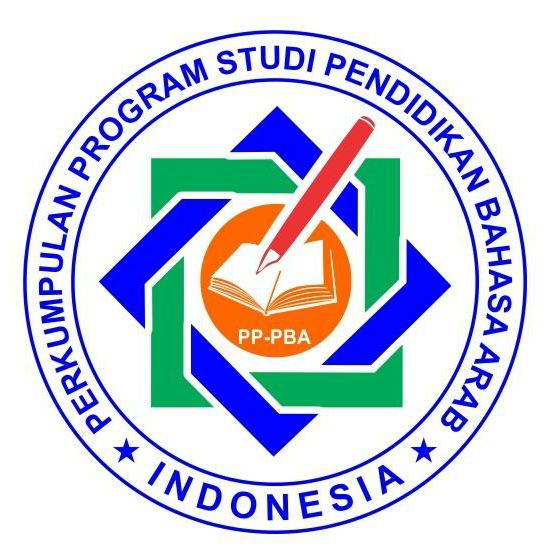Estetika Resepsi Sastra dalam Ragam Tanggapan Naẓm Alfiyyah Ibn Mālik
The Aesthetics Literature Receptions in Variety Responses of Naẓm Alfiyyah ibn Mālik
DOI:
https://doi.org/10.37680/aphorisme.v3i1.1150Keywords:
Aesthetics, Alfiyyah, Reception, ResponseAbstract
This study reveals the various responses to the text of Nazm Alfiyyah Ibn Malik's stanza that developed in Indonesia, especially among Islamic boarding schools. The author uses the aesthetic theory of literary reception by placing Naẓm Alfiyyah Ibn Mālik as a literary text. The results of this study are; The Islamic Boarding School gave birth to two models of responses, responses in the form of works as a whole and responses partially. The first model of Islamic boarding school has a relatively similar response to that of Arab Islamic scholars, tends to be textual so that it is only able to fill a small part of the space in the text of the Nazm Alfiyyah stanza. The second model of Islamic boarding schools gave birth to responses that tended to be contextualistic, out of the nahwu-sarf discussion so that they were able to fill more empty spaces than the first group. From the academics who gave birth to a scientific paper, the response of this group was relatively the same as the first model Islamic boarding school, only the reading process was carried out partially and strictly followed established scientific rules. The creative reader community, who are widely circulated in cyberspace (social media) have responses that tend to be strange (weird), out of habits (rules) that have been established both among Arab Islamic scholars, Islamic boarding schools, and academics.
References
Endraswara, S. (2008). Metodologi Penelitian Sastra. Media Pressindo.
Falsafah Sya’ir-sya’ir Ibnu Malik Oleh Ahsan Milady Al kiffanaty. (n.d.). http://kitabalfiyyah.blogspot.com/2017/02/falsafah-syair-alfiyah-ibnu-malik-ahsan.html
Holilulloh, A. dkk. (2019). Ringkasan Nawhu Sharaf (Karakteristik Kitab Alfiyah Ibnu Malik, Al-Imrithy dan Nazam Maqsud). Trussmedia Grafika.
Jaeni, M. (2017). Tafsiran Kiai Pesantren Terhadap Bait-Bait Naẓam Alfiyyat Ibn Mālik Sebagai Media Hapalan, Kajian Bahasa Dan Trasformasi Nilai-Nilai Moral Santri (Kajian Intertekstualitas Dan Analisis Wacana Kritis). International Journal Ihya’ Ulum Al-Din, 19.
Junus, U. (1985). Resepsi Sastra: Sebuah Pengantar. Gramedia.
Muhammad, D. (2020, November 16). Cara Berlogika Ibnu Mālik dalam Alfiyah Menjelaskan Akidah Asy’ariyah. Sanad Media. https://sanadmedia.com/post/cara-berlogika-ibnu-malik-dalam-alfiyah-menjelaskan-akidah-asyariyah
Musthafa, B. (n.d.). Ausatul Masalik Li Alfiyyah Ibn Malik. Menara Kudus.
Muthahar, A. (n.d.). Al-Wafiyyah Fi Alfiyah Tarjamah Wa Syarhu Wa Jadwal. Pustaka Awaliyyah.
Pradopo, R. D. (2007). Beberapa Teori Sastra, Metode Kritik, dan Penerapannya. Pustaka Pelajar.
Rahima, A. (2016). Literature Reception (A Conceptual Overview). Jurnal Ilmiah Dikdaya, 6.
Rawls, J. (1999). A Theory of Justice: Revised Edition. The Belknap Press of Harvard University Press.
Rohman, K. (2008). Lantunan Bait Sentuhan Ruh. Darul Hikam.
Setiawan, M. N. K. (2015). No Title. Kaukaba Dipantara.
Sholehuddin M., I. S. (2007). Ikhtișar al-maqāșid Terjemah Alfiyah Ibnu Mālik. Dar al-Hikmah.
Wafi, Muhammad, Bahauddin, A. (2003). Khazanah Andalus Menguak Karya Monumental Alfiyyah Ibn Malik. Titian Ilahi Press.
War’i, M. (2018). Prinsip-Prinsip Filsafat Bahasa Dan Etika Dalam Pemaknaan Kalam Ibnu Malik (Tinjauan Hermeneutik). Al-Fathin, 1.
Z, I. F. K. . dan H. A. (2020). Analisis Nilai-nilai Pendidikan Islam Yang Terkandung dalam Makna Tersirat Nadzam Alfiyyah Ibn Malik dan Aktualisasinya Pada Konteks Pendidikan Islam Modern. Jurnal Aattaqwa : Jurnal Ilmu Pendidikan Islam, 16.
Downloads
Published
Issue
Section
License
Authors who publish with this journal agree to the following terms:
Authors retain copyright and grant the journal right of first publication with the work simultaneously licensed under a Creative Commons Attribution-NonCommercial 4.0 International License that allows others to share the work with an acknowledgement of the work's authorship and initial publication in this journal.
Authors are able to enter into separate, additional contractual arrangements for the non-exclusive distribution of the journal's published version of the work (e.g., post it to an institutional repository or publish it in a book), with an acknowledgement of its initial publication in this journal.
Authors are permitted and encouraged to post their work online (e.g., in institutional repositories or on their website) prior to and during the submission process, as it can lead to productive exchanges, as well as earlier and greater citation of published work.





.jpg)


